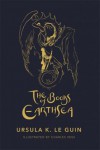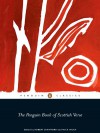Arbie's Unoriginally Titled Book Blog
It's a blog! Mainly of book reviews.
Currently reading
The Fall of Arthur, J.R.R. Tolkien

There are several sections comprising this book and my responses to them were varied.
Starting at the beginning there is the poem - or incomplete fragment there-of. It was never finished, like so many of Tolkien's projects. In my opinion, most of Tolkien's best work was left in an unfinished state at his death: The best stories are all in the Silmarillion, no complete version of which was extant at the time of Tolkien's demise. Instead a heap of fragments in prose and various verse forms co-exist, showing an enormous evolution over pretty much the whole of Tolkien's adult life.
His son, Christopher has published most of this in the gigantic 12 volume History of Middle Earth. The problem there is that the rough diamonds are surrounded by huge quantities of dross. So when yet another book containing some never finished story or poem comes out it's always a risk - will this be gem or dross?
Excitement abounded when rumours of publication of this particular fragment first went abroad because it's the only known original venture into Arthuriana Tolkien made. (Everything else to do with the Arthurian legends was either translation or criticism of extant works.)
So does it justify the hype? Not for me. The poem itself makes up a really small portion of the book, consisting of only four and a bit Cantos and not getting close to the end of the story. In fact it more or less sets the scene then stops. (The first battle is fought but that's it - Arthur never even sets foot in Britain.) Then there's the verse form. Tolkien wrote this in modern English but used the Old English Alliterative verse form. I found this to be frequently overpowering. The rhythm of stresses is so sing-song at times that it lulls me and I realise I haven't taken in anything from the last half page. I usually get that trouble with iambic metre with insufficient variations and it is made worse by rhyme. Alliterative verse usually works much better for me when it comes to narrative poetry - but I am used to Middle English rather than Old English Alliterative verse and it is plain that there are differences between the two.
The first Canto is the best for me, setting a spooky mood as Arthur and Gawain lead their armies into a heathen and primitive East. It's a shame therefore that nothing really happens there and instead they are called back to Britain in haste. It is interesting later on to see matters from the perspective of Mordred and we are just beginning to get to the heart of the matter when Tolkien abandons work.
It's interesting but not great.
Next up is Christopher Tolkien's setting of this poem in the context of the Arthurian tradition. Since I come at Arthuriana and Middle and Old English literature from a position of the utmost amateurism, having never formally studied any of these topics, this proved useful if characteristically dry.
Then there is an essay on how this poem relates to the Silmarillion. The connection is the one word, Avalon: An island in the Silmarillion is given that name and in the present poem Avalon is conceived as an island somewhere off the Western shore of Britain. Could there have been a connection in Tolkien's mind? Answer: Quite likely but there's no proof.
On we go to a textual history of The Fall of Arthur fragment. This got so dull so fast that I just gave up. I don't really care how the final text as published was arrived at enough to wade through the heap of academicese presented. I have a never ending supply of dull academic documents to deal with professionally and this essay just isn't about anything important or interesting enough for me to waste time on.
Finally there is a short Appendix in Tolkien's own words on the verse form used in the poem. This was interesting and if anything, too short. It's also not the same one printed in The Monsters and the Critics. I suggest people read this section first - it was useful.
Overall there's too little J.R.R and too much Christopher Tolkien in this book. The poem itself is probably worth three stars, not two.
 5
5










